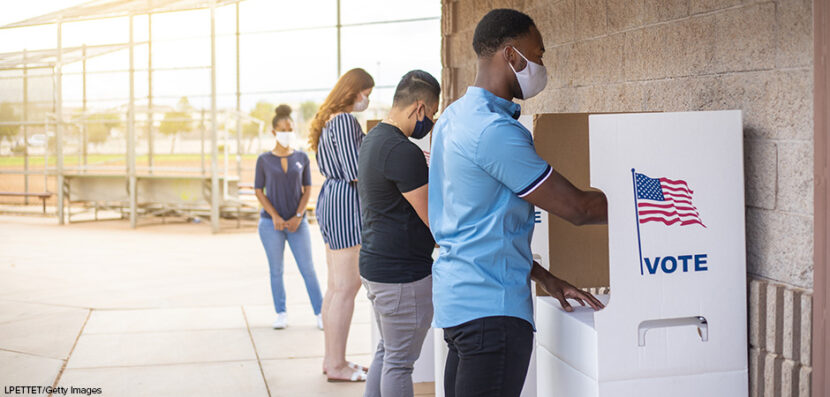- Current Events Nebraska Rejects Winner-Take-All Proposal
- Citizenship Voting Under Age 18
- Citizenship Citizenship in Action
- Democratic Party Biden’s and Trump’s Recent Primary Results
- Elections Trump and Biden Win South Carolina and Michigan Primaries
- Democratic Party Trump and Biden Win Big in Early February Contests

Young Voters and the 2020 Election
You may have heard it said before: Young people don’t vote. They aren’t engaged in politics. But believe it or not, this couldn’t be further from the truth. Especially in the past few years, young people have led protests and marches, written to their senators and representatives, and attended rallies. According to Tufts University’s Center for Information & Research on Civic Learning and Engagement, three-fourths of young voters are paying attention to the upcoming presidential election, and more than 80 percent believe that they have the power to change the future. Critics respond that youth voter turnout rates remain surprisingly low. How might young voters impact the upcoming election? Here, Election Central takes a closer look.
View on the Candidates
When it comes to which candidate they prefer, young people are clear. Harvard University’s Institute of Politics recently conducted a nationwide poll among American youth aged 18 to 29. The data shows that sixty percent of likely voters, aged 18 to 29 prefer Joe Biden. Only 27 percent of those who responded to the poll say they plan to vote for Donald Trump.
However, while a greater number support Biden, they lack the enthusiasm that Trump voters have. The poll also shows that only 35 percent of these likely voters call themselves very excited about Biden, while 56 percent respond that they are very excited about Trump. And this enthusiasm could be vital in getting young people to show up at the polls on Election Day.
But Will They Vote?
Out of those who responded to the survey, 63 percent said that they definitely plan to vote in the upcoming presidential election. This is a jump of nearly 20 percent over the 2016 election. But will they actually turn up at the polls? And how can more young people be convinced to vote, not just in presidential years, but in every election contest in state and local races?
One of the main reasons why young people don’t vote is because the voter registration process can be confusing for college students living away from home, or for those who are trying to navigate it for the first time. States that have automatic voter registration see a substantial increase in turnout, especially among young people who are voting for the first time.
A second key factor is education. Today, only nine states (plus the District of Columbia) require students to take a full year of U.S. government or civics classes. Thirty states require only one semester, while eleven have no government or civics requirement at all. A 2016 survey by the Annenberg Public Policy Center found that only 26 percent of Americans could name all three branches of government. Perhaps more extensive study of the structure and operation of government would increase engagement among younger voters who felt more comfortable understanding how government works.
Both political parties are spending some of their campaign time and money in an attempt to attract the youngest voters to their candidate. It will not be until after the votes are counted in November that we can judge how effective these efforts have been.


